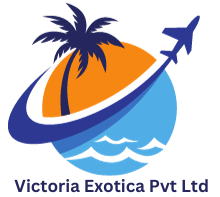
Travelling to Europe is a dream for many, with its rich history, diverse cultures, and stunning landscapes. Here is your guide to smooth travel. However, one potential challenge that travellers often face is the language barrier. Europe is a continent with numerous countries, each with its own language(s), and navigating these linguistic diversities can be both exciting and intimidating, therefore we need a guide to smooth travel In this comprehensive guide, we will explore practical tips and strategies to help you avoid language barriers when travelling to Europe, ensuring that you have a smooth and enjoyable journey which will help you as a guide to smooth travel.
1. Learn Basic Phrases
Before you embark on your European adventure, take the time to learn some basic phrases in the local languages of the countries you plan to visit. While English is widely spoken in many European cities, making an effort to speak the local language can go a long way in breaking the ice and getting assistance when needed. Moreover, it will also increase your knowledge. Key phrases to learn include:
– Hello/Hi
– Thank you
– Please
– Yes/No
– Excuse me
– I need help
– Where is…?
– How much does it cost?
– Goodbye
2. Utilize Translation Apps
In today’s digital age, translation apps have become indispensable tools for travelers. Apps like Google Translate, Duolingo, and Babbel offer real-time translation features that can help bridge the language gap. You can type or speak phrases in your native language, and the app will provide translations in the local language. Additionally, some apps can even translate text from photos, making it easier to decipher menus and signs.
3. Carry a Phrasebook
Consider carrying a pocket-sized phrasebook with you. These physical books contain common phrases and translations, making it easy to communicate in a pinch, especially when you don’t have internet access. Some phrasebooks also include pronunciation guides to help you sound more authentic when speaking. Thereby, making travel easy for you.
4. Research Language Profiles
Before your trip, take some time to research the linguistic landscape of the countries you’ll be visiting. Knowing which languages are spoken in specific regions can help you prepare accordingly. For example, if you’re traveling to Barcelona, Spain, it’s helpful to know that Catalan is commonly spoken alongside Spanish.
5. Learn the Local Alphabet
While you may not become fluent in the local language’s script, learning the alphabet can be beneficial. Familiarizing yourself with the local script can help you read street signs, menus, and other essential information.
6. Use English as a Backup
English is widely spoken in major European cities, especially in tourist areas. Therefore, in most cases, you can rely on English as a backup when facing language barriers. However, remember to be polite and patient, as not everyone may be fluent.
7. Embrace Non-Verbal Communication
Non-verbal communication can be surprisingly effective when dealing with language barriers. Use gestures, facial expressions, and body language to convey your needs or understand others. A smile and a nod can often go a long way in conveying friendliness and appreciation.
8. Stay in Tourist-Friendly Areas
Choosing accommodations in tourist-friendly areas can make your travels smoother. In these areas, hotel staff, restaurant employees, and shopkeepers are more likely to speak English and be accustomed to helping international visitors.
9. Take Guided Tours
Guided tours, whether walking tours, bus tours, or museum tours, often come with English-speaking guides. These tours not only provide valuable information about the destination but also give you the chance to ask questions and interact with locals who are accustomed to dealing with tourists.
10. Learn the Local Customs
Understanding and respecting local customs can help you navigate interactions with locals more smoothly. For instance, in some cultures, it’s customary to greet with a kiss on both cheeks, while in others, a handshake is the norm. Being aware of these customs can help you avoid awkward or unintentionally disrespectful situations.
11. Use Visual Aids
Visual aids, such as maps, pictures, and diagrams, can be powerful tools for communication. Pointing to a location on a map, showing a picture of the dish you want to order, or drawing a simple sketch can help convey your message when words fail.
12. Be Patient and Polite
Patience and politeness are essential when dealing with language barriers. Understand that not everyone you encounter will speak English, and even if they do, it may not be their first language. Approach interactions with a respectful and understanding attitude, and you’ll find that most people are willing to assist you to the best of their abilities.
13. Use Local Transportation Apps
When navigating public transportation in European cities, use local transportation apps. These apps often have user-friendly interfaces, route information in English, and real-time updates to help you navigate the city efficiently.
14. Plan Ahead for Dietary Restrictions
If you have dietary restrictions or food allergies, it’s crucial to communicate your needs effectively. Learning phrases related to your dietary requirements can help you order food safely. Additionally, research local dishes and ingredients to avoid potential allergens.
15. Seek Help from Locals
Don’t hesitate to ask for help from locals. Most people are happy to assist travellers, and they can provide valuable insights into their culture and city. If language is a barrier, try asking young people, as they are more likely to speak English.
Travelling to Europe is an exciting adventure filled with unforgettable experiences. While language barriers can pose challenges, they should not deter you from exploring the diverse cultures and stunning landscapes that Europe has to offer. By taking the time to learn basic phrases, using translation apps, and adopting a patient and respectful attitude, you can break down language barriers and connect with locals in meaningful ways. Embrace the opportunity to learn about different cultures, and your European journey will be enriched by the connections you make along the way. Remember, communication transcends language, and a smile can be understood in any tongue. For any other query you can contact us, we are DElhi’s best travel agency for both Domestic and International package





